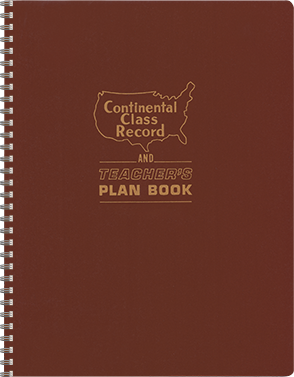You Know You’re a Teacher When. . . You Never Leave “Teacher Mode” | Infographic
 Raise your hand if you’ve ever…
Raise your hand if you’ve ever…
- Used your “teacher look” while out in public.
- Clapped to get your spouse’s attention.
- Asked an adult if they’ve washed their hands after they come out of the restroom.
If you said yes to any of the above, you must be a teacher! Every teacher knows, we all have moments where we unconsciously slip into “teacher mode” outside of the classroom.
We asked our network of teachers to finish the sentence, “You know you’re a teacher when…” Keep reading to see what they said.
“You Know You’re a Teacher When ________”
“You can play ‘I know more acronyms than you’ with adults not in education.” – Sheri, Alabama
“You can go all day without going to the bathroom.” – Benita, New York
“It is Saturday or Sunday and you can eat your lunch in about 5 minutes.” – Dara, Pennsylvania
“You answer to your name, Mom, Grandma, and many other names.” – Victoria, Mississippi
“Your closet is arranged by ‘teacher’ clothes and ‘other’ clothes.” – Corrinne, South Dakota
“You go to a store and notice some words misspelled in the labels and advertisements, and you go and tell the manager.” – Raquel, Illinois
“While sleeping, you dream about rubrics to go with future projects.” – Marshalla, New York
“You have more friends under the age of 10 than over.” – Nancy, South Dakota
“You randomly push in chairs no matter where you are.” – Jennifer, Massachusetts
“You carry a stack of papers to grade everywhere you go.” – Christine, Pennsylvania
“Your car dings to tell you to put a seatbelt on the passenger, but it’s only your book bag on the seat!” – Janet, Pennsylvania
“The first thing your husband asks when you get home is, ‘Got any kid stories today?’” – Cheryl, Tennessee
“You want to correct people’s grammar mistakes on Facebook.” – Susan, Virginia
“You can recite the exact number of days, hours, and minutes until spring break!” – Aimee, Georgia
“You wake up in the middle of the night with a great idea for the lesson plan that you were dreaming about!” – Kylie, Colorado
Tips on Creating a Work/Life Balance
It’s no wonder that your mind never wanders far from “teacher mode,” even in your free time. A national survey of over 1,300 teachers revealed that teachers work well over 40 hours a week. A typical teacher works an average of 54 hours per week.
The concept of a work/life balance can feel unattainable for busy teachers. However, it’s important to take care of yourself— for your mental and physical health, your relationships, and, in the long run, even your students’ progress.
Maximize Your “Prime Time”
Are you a morning person? Do you hit your stride by your mid-day planning period? Or do you do your best work when your family is tucked in for the night? Identify the time that you do your best work and maximize it.
Set Working Hours
As much as possible, try to set professional working hours for yourself. Most of your day is spent in front of the class, so allot yourself 1–2 hours before school and/or 1–2 hours after school to get important tasks completed, like grading papers, reporting, lesson planning, meetings, and answering emails. This will help you avoid bringing lots of work home with you.
Assign Your Time
When you finally have time to get work done (an early morning in a quiet classroom or a free planning period), do you find yourself without direction? Assign a focused task each day, so when it’s time to work, you know exactly what to tackle. For example, every Monday is grading, Wednesday is making copies for the next week, Thursday is writing lesson plans for the next week, etc.
Look for Time-Savers
Your time is precious, so work smarter, not harder! Take a moment to consider if any of your daily tasks could be outsourced to your students. Assigning classroom jobs can help you save time while also teaching students responsibility.
Apps are helpful time-saving tools for a host of reasons. They can streamline communication with your students and their families, as well as collect data automatically for your formative assessments.
The Power of No
This may be the hardest tip for teachers to follow, but continuing to stretch yourself thin won’t help you, your students, your family, or your co-workers. It’s time to let go of the guilt! Of course, you can’t avoid every obligation, but you can learn to pick and choose the ones that really matter. If a flat-out “no” feels too harsh, try something like, “I can’t help right now, but please ask me next time you need a hand.”
Just as no two students are alike, your self-care needs are unique. Take a little time to figure out what works for you by trying one or two new habits. Learning how to achieve a work-life balance can be challenging— but not impossible!

This blog was originally published on May 23, 2017. It was updated on June 13, 2023.


